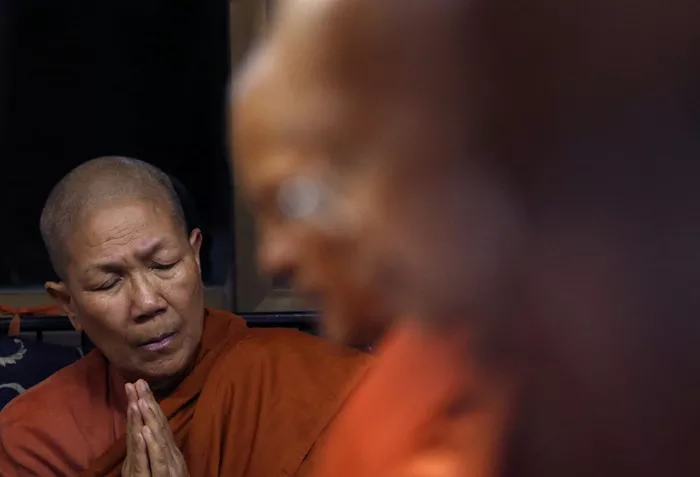Sri Lankan Buddhist monks have urged the government to ban commercial entertainment that violates Buddhist teachings during an annual festival marking the arrival of Buddhism to the Indian Ocean island nation centuries ago.
The monks said street dances, folk shows, music performances, comedy shows, devil dances and haunted house exhibitions are against Buddhist values. They lack religious significance and overshadow the sacred significance of the Poson festival.
The festival is celebrated on the full moon day of the seventh month (Poson) of the Sinhalese calendar, which falls on June 10 this year. It commemorates the historic event when the Buddhist missionary monk Mahinda met King Devanampiyatissa at Mihintale near Anuradhapura in the 3rd century BC and delivered his first sermon.
“We urge (the government) to recognize this holy day as one of the most important festivals for Sri Lankan Buddhists,” said Venerable Thumbulle Seelakkanda Thera, president of the All Ceylon Shasanarakshaka Bala Mandalaya, at a press conference with monks in Colombo on June 4.
The monks have called for a ban on street entertainment and urged people not to organize them during the Posen week celebrated in towns and villages across the country.
“Such events should not take place. It is deeply regrettable if they do,” the abbot added.
The monks said the event is meant for spiritual reflection, compassion and moral cultivation.
Traditionally, Buddhists celebrate the coming of Buddhism with devotion and reflection by observing vinaya (emphasis on moral behavior or virtue), visiting temples, meditating, listening to teachings, giving alms, organizing free food and flower stalls, lighting lanterns and participating in pilgrimages.
Many secular groups also worry that noisy secular performances and events will overshadow the sacred rituals.
Nileesha Chulani, a member of the Buddhist lay community and Sunday school teacher, said that in the early years, public displays of hell were meant to illustrate the consequences of sin, often incorporating artistic elements and offering some form of religious instruction.
“Today, these displays have become commercialised and driven by profit rather than spiritual purposes,” Chulani, 32, told UCA News.
RMP Rathnayake, commissioner for Buddhist affairs, said the events were permitted under government notifications. Organisers need police approval to use equipment such as loudspeakers and pay entertainment tax.
“It is now prohibited to fly Buddhist flags, especially at free food stalls,” he said.
More than 70 per cent of Sri Lanka’s 22 million people are Buddhists.
The celebrations have been financed by the public for the past two years after Buddhist monks rejected financial support from the Sri Lankan government as the country endured a severe foreign exchange crisis.
Monks took to the streets to collect funds for lighting and furnishings for the two million visitors to the Mihintale Rajamaha Viharaya temple, a historic landmark in the Buddhist-majority country.
This year, the National Pursam Festival will be hosted by the state, which the monks say is a relief for them.
The festival is second only to Vesak in importance, which commemorates the birth, enlightenment and death of the Buddha, who founded the meditative religion of Buddhism in India.

